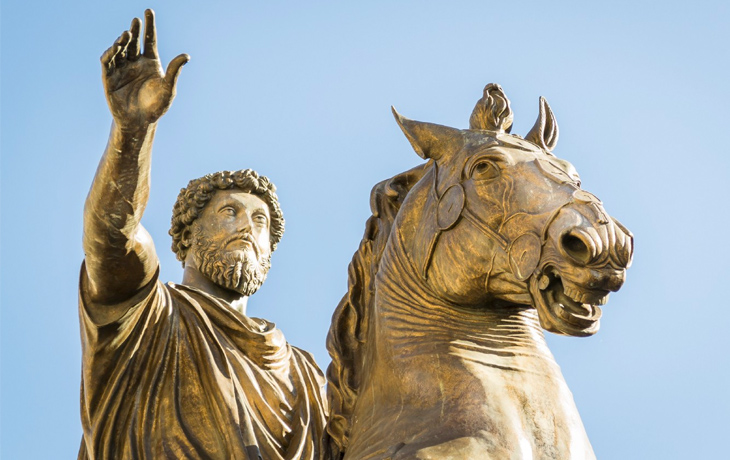Maintaining a positive mental attitude is a major key to any survival situation. Or so we’re so often told. But could a positive attitude actually work against you?
Author Jim Collins explored the concept in his 2001 book, Good to Great. The book is about business and as a business book, it hasn’t aged well. (Two of the “great” companies listed are Circuit City and Fannie Mae.)
But it has an interesting tidbit about survival. Collins interviewed Vice Admiral James Stockdale, a survivor of the Hanoi Hilton during the Vietnam War, who told this anecdote:
Finally I asked, “Who didn’t make it out?”
“Oh, that’s easy,” he said. “The optimists.”
“The optimists? I don’t understand,” I said, now completely confused given what he’d said earlier.
If a positive mental attitude is key for survival, how is it that the optimists had a worse chance of surviving their captivity? It’s a conundrum called the Stockdale Paradox.
Summary:
- The Stockdale Paradox states that while a positive outlook is important for survival, hopeless optimism is a detriment.
- The key is to fully accept your situation and maintain a positive attitude in spite of the odds.
- James Stockdale survived seven-and-a-half years as a prisoner in Vietnam thanks to his Stoic philosophy that encourages embracing reality and disregarding comfort.
- The keys to a survival mindset: faith, a sense of purpose, and being able to accept your circumstances without despair.
- An alternative take on this approach is survival expert Cody Lundin’s “rational insanity” approach, which encourages you to respond to challenges with “party on!”
- Being able to control your own psychology is a skill that takes practice, so work on cultivating these attitudes in normal life (where there’s still plenty of b.s. to deal with!)

Who was James Stockdale? Why was he there?
Those of us of a certain age remember Vice Admiral Stockdale as Ross Perot’s running mate in the 1992 presidential election and his disastrous performance in the vice presidential debate. He started off by saying “Who am I? Why am I here?” And it went downhill from there. Stockdale was skewered by Phil Hartman on Saturday Night Live, resulting in a sketch where Dana Carvey’s Ross Perot tried to dump Hartman’s Stockdale on the side of the road. Stockdale was forever branded as a senile buffoon.
As funny as Carvey and Hartman were, the media did a real disservice to James Bond Stockdale (yes, that was his real name — he passed in 2005), who was by all means an American badass. He was involved from the very beginning of the Vietnam War until the bitter end. For seven and a half of those years, he was a prisoner of the Viet Cong at Hỏa Lò Prison — the infamous Hanoi Hilton, which also housed future (and now late) Senator John McCain.
In captivity, Stockdale was a leader of the POW resistance, becoming one of the Alcatraz Gang that spent time in solitary confinement and faced repeated torture. When his captors planned to use him as a propaganda tool, he slashed his scalp with a razor and beat his own face in with a chair to make himself unrecognizable. He once broke a window and slit his own wrists with the glass to prevent his captors from extracting information from him.
That’s all to say that James Bond Stockdale knew more than most about facing extremely difficult situations.
The Stockdale Paradox
Which brings us back to the Stockdale Paradox. How is it possible that optimism could kill you in a survival situation? It comes down to accepting reality and maintaining realistic expectations.
Stockdale told Collins:
The optimists. Oh, they were the ones who said, “We’re going to be out by Christmas.” And Christmas would come, and Christmas would go. Then they’d say, “We’re going to be out by Easter.” And Easter would come, and Easter would go. And then Thanksgiving, and then it would be Christmas again. And they died of a broken heart. This is a very important lesson. You must never confuse faith that you will prevail in the end–-which you can never afford to lose–-with the discipline to confront the most brutal facts of your current reality, whatever they might be.
Thus is the Stockdale Paradox: you must remain positive and never lose hope, but at the same time you cannot set yourself up for failure with unrealistically optimistic expectations that will inevitably crush your morale when they don’t materialize.
That means being able to accept the horrible truth of the situation you’re in, and not only being okay with it, but having unwavering faith that you will persevere.
The key to the Stockdale Paradox: faith and purpose
How can you face an utterly hopeless situation, fully accept it, yet not despair? For Stockwell, the answer was faith.
“I never lost faith in the end of the story,” he said, when I asked him. “I never doubted not only that I would get out, but also that I would prevail in the end and turn the experience into the defining event of my life, which in retrospect, I would not trade.” – Jim Collins, Good to Great
Following his retirement from the Navy in 1979, Stockdale spent much of the rest of his career in academia, focusing on Stoicism, which he credited with his survival during the war.
Stoicism is a philosophy that traces its origins back to Ancient Greece, though it came into prominence under Roman emperor Marcus Aureilis. Stoicism, in sum, teaches accepting things for what they are, accepting your role in nature, placing virtue above all, and not being ruled by emotions and desires.
The Prepared’s founder, John Ramey, has been a practicing Stoic for as long as he’s been prepping and believes it goes hand-in-hand with surviving modern life.
Aurelius, Stockdale, and Ramey were heavily influenced by the Greek slave-turned-philosopher Epictetus, who dictated a work called the Enchiridion, literally meaning “ready at hand,” as if it were a sword or other type of weapon. Unlike most philosophies, Stoicism places an emphasis on action over thought.
In Stockdale on Stoicism II: Master of My Fate, in which Stockdale documented his Stoic philosophy as it related to his imprisonment in Vietnam, Stockdale summed up his view of Stoicism:
Epictetus was telling his students that there can be no such thing as being the “victim” of another. You can only be a “victim” of yourself. It’s all in how you discipline your mind. Who is your master? “He who has authority over any of the things on which you have set your heart. …What is the result at which all virtue aims? Serenity. …Show me a man who though sick is happy, who though in danger is happy, who though in prison is happy, and I’II show you a Stoic.”
In the seconds between ejecting from his Douglas A-4 Skyhawk and hitting the ground, Stockdale vowed to use what he knew would be years of captivity as a living laboratory for Stoic philosophy:
After ejection, I had about 30 seconds to make my last statement in freedom before I landed in the main street of a little village right ahead. And, so help me, I whispered to myself: “Five years down there, at least. I’m leaving the world of technology and entering the world of Epictetus.” – Stockdale on Stoicism II: Master of My Fate
Stockdale landed with a purpose and faith that he would live long enough to see it out. In contemporary military speak, it’s summed up as: “Embrace the suck.”
Rational insanity and a party on attitude
You don’t have to become a literal Stoic to develop the ability to “embrace the suck.” Early Christians survived and thrived through persecution. As the Apostle Paul said in 2 Corinthians, “Therefore I take pleasure in infirmities, in reproaches, in necessities, in persecutions, in distresses for Christ’s sake: for when I am weak, then am I strong.”
You absolutely do not need to believe in an organized theistic religion in order to develop this kind of philosophy or ‘faith.’
In 98.6 Degrees: The Art of Keeping Your Ass Alive, Cody Lundin advocates cultivating a “rational insanity” that can propel you through the toughest times:
During a survival episode, you’ll be taxed to the limit on all levels. In order to prevail and mitigate the panic factor, you’ll have to be as cool as a cucumber. You’ll need to approach your situation in a somewhat detached and rational manner, while gearing up your mind and body to accomplish the insane if necessary, thereby smashing all self-imposed limitations. Funneling the intense energy of insanity and uniting it with the sound coolness of rational decision making creates a potent force in emergency scenarios. Condensing this potency can best be summed up in one simple statement: the clarion call “Party On!” Remember it in your time of need or whenever you need a boost of courage or focus. Relish and relax in its splendor. It is the most optimistic statement in the world, one in which there is no opposite, no opposing force. It is the ultimate attitude adjuster and contains great power if used with conviction.
Lundin’s faith is more wacky and ephemeral. Instead of saying “I will survive” or “The Lord will welcome me in Heaven,” he says, “Doesn’t matter, I’m gonna party anyway.” The point is that there are many paths to developing a resilient mindset.
The key is to develop this kind of resiliency before you need it, just as Stockdale did by studying the works of the Stoics before crash-landing in Vietnam. Learn to practice a “party on” philosophy in your daily life.
Break a glass? “Party on!”
Cut your finger while cooking dinner? “Party on!”
Fall down a ravine and get bitten by a snake? “Party on!”
Major collapse? “Oh well, party on!” 😉

You are reporting the comment """ by on